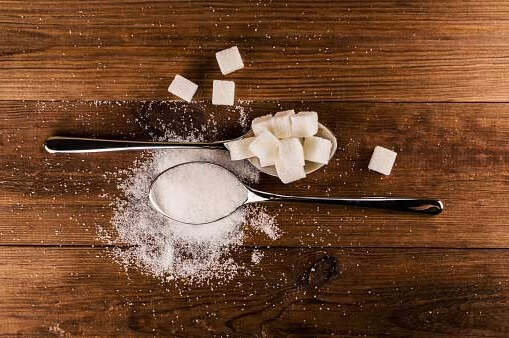Offering a sweet taste , but without calories , artificial sweeteners may seem like the effective solution to achieve weight loss. A regular dose of soda provides about 150 Cal, almost all sugar. The same amount of diet juice provides zero calories. Choosing between the two types of beverages seems to be extremely simple.
Of the sweeteners used, saccharin, aspartame and stevia (a natural low-calorie inducer) are perhaps the best known. How the human body responds to these sweeteners is very complex and is not yet fully understood.
Sweeteners and obesity
The American Heart Association – AHA and the American Diabetes Association – ADA have recommended not using artificial sweeteners instead of sugar to combat obesity, metabolic syndrome or diabetes .
One concern is that people using artificial sweeteners could consume additional calories from other sources. This can happen because we like to fool ourselves.
It is also possible that these substances change the way we taste food. Artificial sweeteners are much stronger than sugar or glucose-fructose syrup . Overstimulation of sugar receptors through frequent use of these sweeteners can limit tolerance to more complex flavors. This means that people who commonly use artificial sweeteners may have less intense flavor in sweet foods such as fruits and may have less appetite for sweet foods, such as vegetables.
In other words, Artificial sweeteners can make you replace healthy and nutritious foods with less nutritious artificial flavors.
Artificial sweeteners can fool us in another way. Studies suggest that these substances can cause us to no longer associate sweet taste with caloric intake. As a result, we feel the need to eat more sweets, choose sweet foods over nutritious foods, and gain weight. Participants in the San Antonio Heart Study who consumed more than 21 diet drinks per week were twice as likely to be overweight or obese compared to those who did not consume diet drinks.
Addiction to artificial sweeteners
Do you think you can give up diet drinks whenever you want? Do not be so sure! Animal studies suggest that artificial sweeteners can be addictive.
Are artificial sweeteners safe?
Not known exactly the long-term effect that the consumption of artificial sweeteners has on health. In the Multi-Ethnic Atherosclerosis Study, daily consumption of diet drinks was associated with a 36% higher risk of metabolic syndrome and 67% of type 2 diabetes.
Shall we go back to sugar?
When compared to artificial sweeteners, sugar doesn’t seem so bad. Foods that contain natural sugars (fruits, for example) are generally very nutritious, rich in vitamins and minerals, fiber and with a low glycemic index. On the other hand, refined sugars, concentrates consumed in large quantities rapidly increase blood sugar and insulin levels, triglycerides, mediators of inflammation and oxygen radicals and, with them, the risk of diabetes, cardiovascular diseases and others chronic diseases.

What is the healthiest sweetener?
Stevia
Stevia is a very popular low-calorie sweetener. It is extracted from the leaves of a plant called Stevia rebaudiana. This plant has been cultivated for sweet and medicinal purposes for centuries in South America. Several sweet compounds are found in stevia leaves. The main ones are stevioside and rebaudioside A. Both are hundreds of times sweeter than sugar.
Erythritol
Erythritol is another low calorie sweetener . It is a sugar alcohol that is found naturally in certain fruits. However, the erythritol powder available for purchase is probably made through an industrial process. It contains 0.24 calories per gram, or about 6% of calories in an equal amount of sugar, with 70% of the sweetness.
Xylitol
Xylitol is an alcohol with a sweetness similar to sugar . It contains 2.4 calories per gram, or about two-thirds of the caloric value of sugar.
